In both residential and commercial settings, managing water and moisture can be a significant challenge. From flooded basements to water-soaked carpets, the need for an efficient water extractor cannot be overstated. Whether you’re dealing with a small spill or a major flooding event, the right equipment can make all the difference in cleanup and restoration. This comprehensive guide will cover everything you need to know about water extractors, including their uses, types, benefits, and considerations for choosing the right one.
Table of Contents
What is a Water Extractor?
A water extractor is a machine designed to remove water from surfaces, such as carpets, floors, and other areas that have been affected by moisture. These machines are crucial in emergency situations like flooding but are also commonly used for routine cleaning tasks. They work by sucking up the water and storing it in a reservoir or directing it to a drainage system. Water extractors come in various sizes and types, each suited for specific tasks and environments.
Types of Water Extractors
There are several types of water extractors available, each designed for different applications:
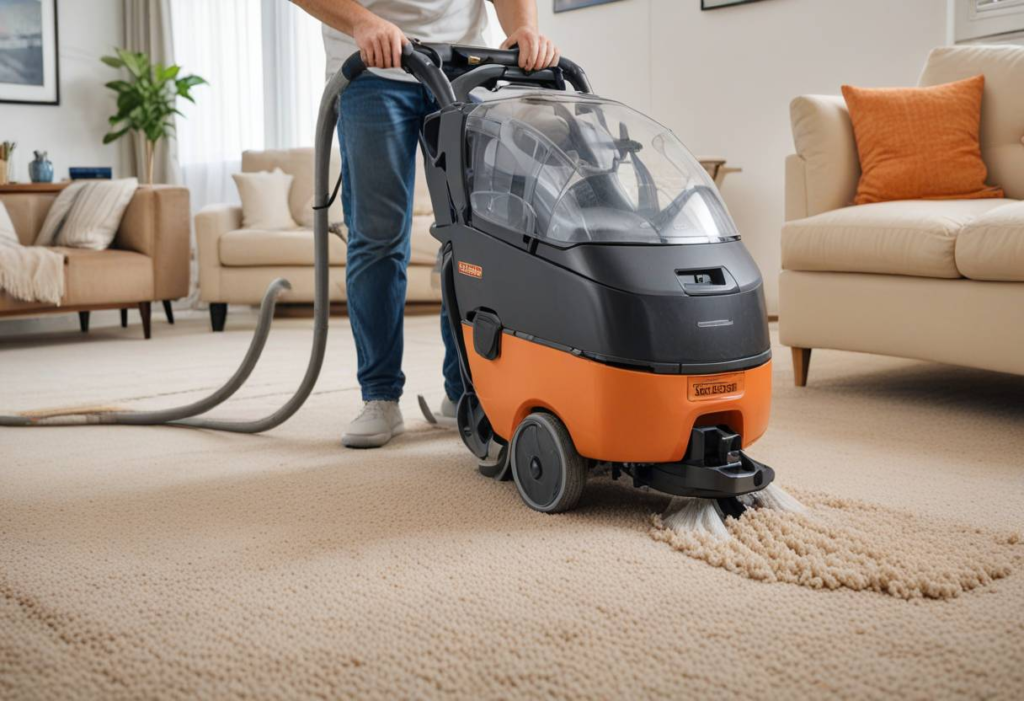
- Carpet Water Extractor: Specifically designed for carpets, these extractors remove moisture and dirt from deep within the carpet fibers, making them essential for both cleaning and restoration.
- Hot Water Extractor: This type of extractor uses hot water to clean surfaces, often used in carpet cleaning and car detailing to remove stubborn stains and dirt.
- Water Extractor Vacuum: A versatile tool, the water extractor vacuum can handle both wet and dry cleaning tasks, making it ideal for various cleaning needs.
- Shop Vac Water Extractor: Commonly used in workshops and garages, this type of water extractor is designed to handle tough cleaning jobs, including the removal of large quantities of water.
- Portable Water Extractor: Lightweight and easy to move, the portable water extractor is perfect for smaller spaces or when mobility is a priority.
- Commercial Water Extractor: Built for heavy-duty cleaning, the commercial water extractor is used in large spaces like offices, warehouses, and public buildings.
- Water Extractor Pump: Used primarily in flooded areas, the water extractor pump efficiently moves large amounts of water from one location to another.
Why You Need a Water Extractor
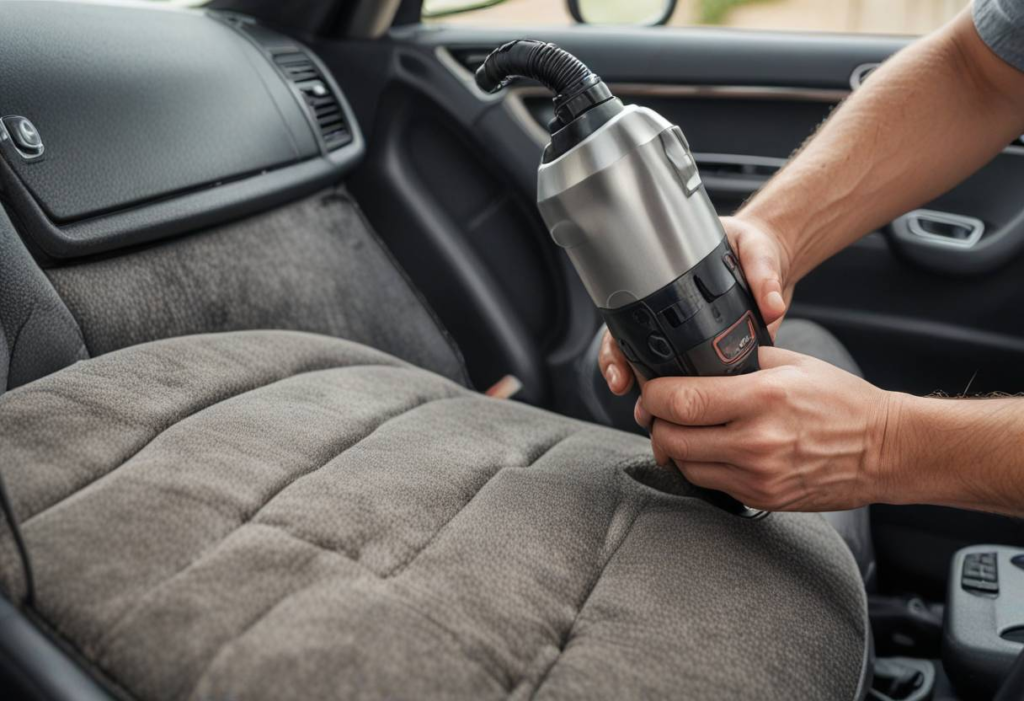
Whether you’re a homeowner dealing with a flooded basement or a business owner in need of regular cleaning equipment, a water extractor is an invaluable tool. Here’s why:
Efficient Water Removal
The primary function of a water extractor is to remove water quickly and efficiently. In the event of a flood or water spill, immediate water removal is crucial to prevent damage to property and reduce the risk of mold and mildew growth.
Versatility
From carpets to hardwood floors, water extractors can be used on a variety of surfaces. This versatility makes them suitable for numerous cleaning and restoration tasks, including emergency water removal, routine carpet cleaning, and more.
Prevents Further Damage
When water is left to sit on surfaces, it can cause significant damage. Water extractors help prevent this by quickly removing the water and minimizing the potential for long-term issues, such as warping, discoloration, or structural damage.
Essential for Restoration
After a flood or water damage event, a water extractor is one of the first tools used in the restoration process. By removing the water promptly, these machines help speed up the drying process and reduce the risk of further damage.
Water in Basement Who to Call and What to Do : Don’t be Panic! 7 Ultimate Steps To follow
How to Choose the Right Water Extractor
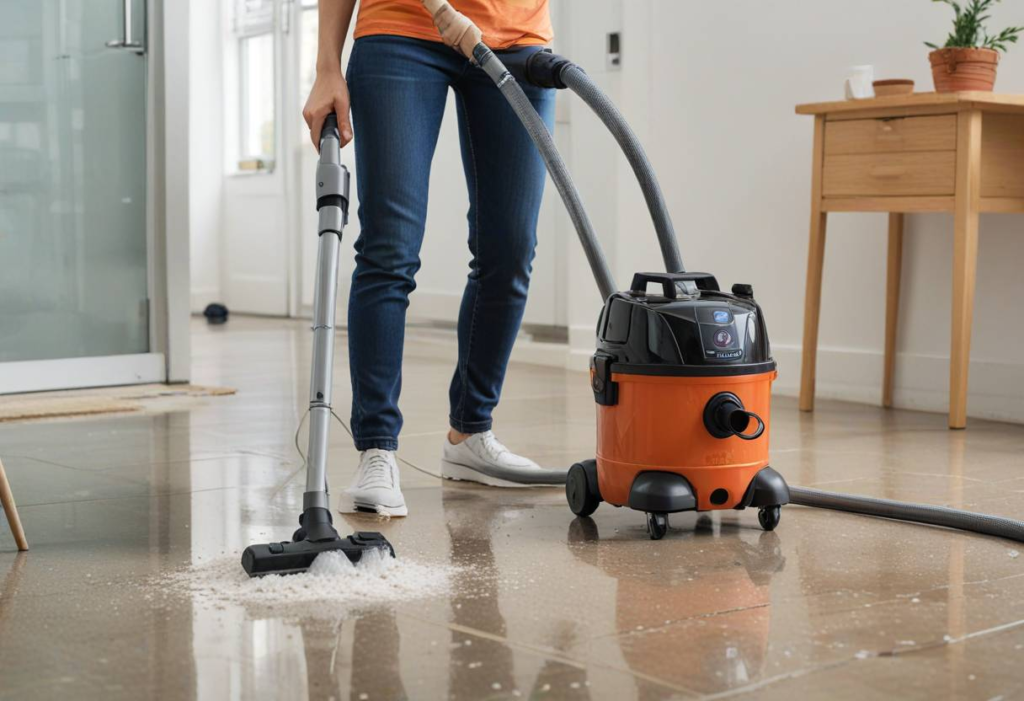
With so many options available, selecting the right water extractor for your needs can be overwhelming. Here are some key factors to consider:
Type of Water Extractor
As mentioned earlier, different types of water extractors are designed for different tasks. Consider the specific cleaning or restoration needs you have before choosing a water extractor. For example, a carpet water extractor is ideal for carpet cleaning, while a hot water extractor might be better for removing stubborn stains.
Capacity
The size of the water extractor‘s tank or reservoir is important, especially if you’re dealing with large volumes of water. A larger tank means you can work longer without needing to stop and empty the machine, making it more efficient for bigger jobs.
Portability
Consider how often you’ll need to move the water extractor. If you plan to use it in multiple locations or need to transport it frequently, a portable water extractor is a smart choice. Look for features like wheels, handles, and lightweight construction.
Power and Suction
The power and suction capability of a water extractor determines how quickly and effectively it can remove water. High-powered models with strong suction are ideal for dealing with large-scale water issues, while smaller, less powerful models might be sufficient for routine cleaning tasks.
Ease of Use
Finally, consider the ease of use. A water extractor that is easy to operate, maintain, and clean will save you time and effort in the long run. Look for user-friendly features like simple controls, easy access to the tank, and straightforward maintenance requirements.
Common Uses for a Water Extractor
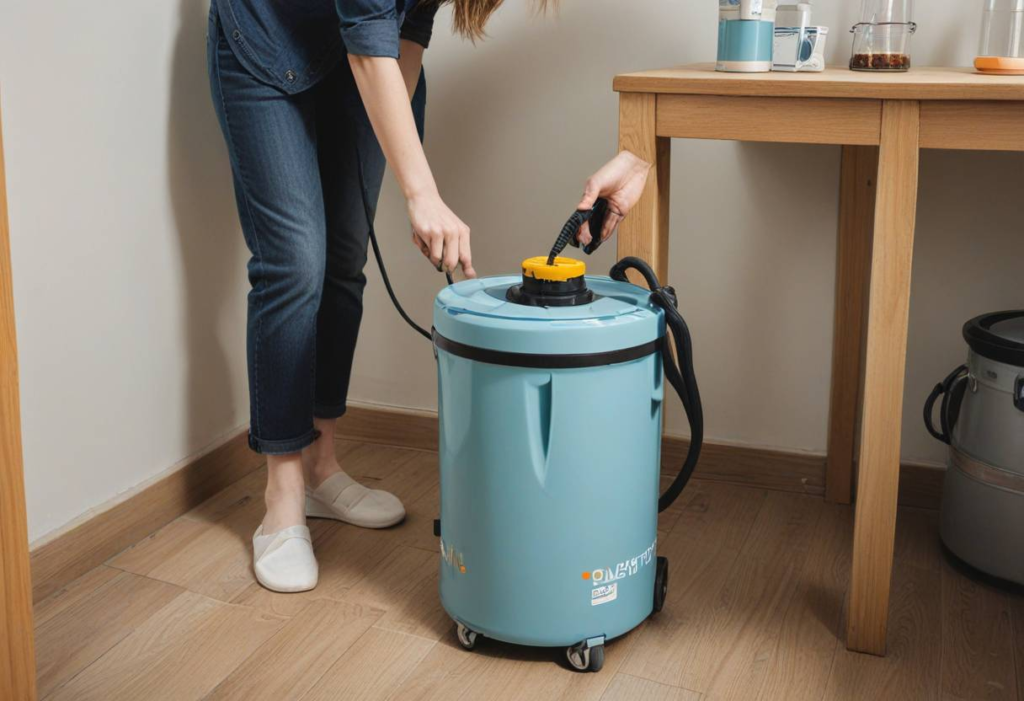
Water extractors are used in a variety of settings for different purposes. Here are some of the most common applications:
Carpet Cleaning
A carpet water extractor is essential for deep cleaning carpets. These machines remove dirt, stains, and moisture from the carpet fibers, leaving your carpets clean and fresh. For those in the carpet cleaning business or homeowners with large areas of carpet, a water extractor is a must-have.
Flood Restoration
After a flood, a water extractor is one of the first tools used to remove standing water from affected areas. This helps prevent further damage to property and reduces the risk of mold and mildew growth. A water extractor pump is particularly useful in these situations, as it can move large amounts of water quickly.
Car Detailing
For car detailing, a hot water extractor is often used to clean upholstery and remove stains from the interior of vehicles. The hot water helps break down dirt and grime, making it easier to remove. This type of water extractor is particularly popular among professional detailers.
Routine Cleaning
In addition to emergency situations, water extractors are used for routine cleaning tasks. Whether it’s cleaning carpets, hard floors, or even furniture, a water extractor helps remove moisture and keep surfaces clean.
Renting vs. Buying a Water Extractor
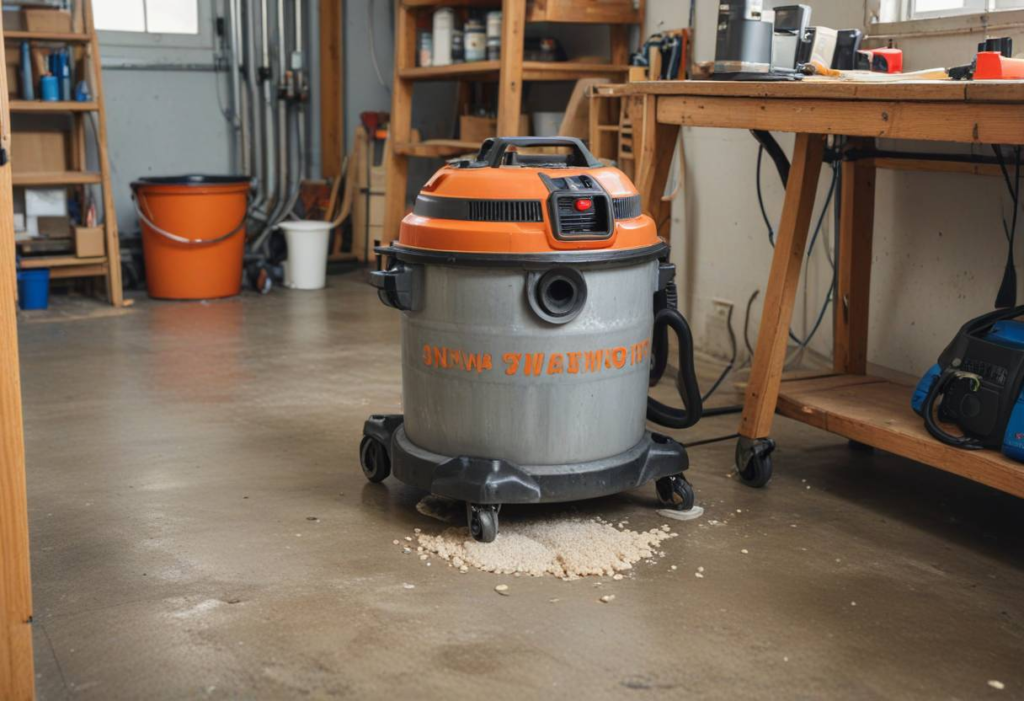
When deciding whether to rent or buy a water extractor, consider how often you’ll need to use it and the specific requirements of your cleaning or restoration tasks.
Renting a Water Extractor
If you only need a water extractor for a one-time project or an occasional task, renting might be the best option. Water extractor rental is a cost-effective solution that allows you to use high-quality equipment without the upfront cost of purchasing it.
Buying a Water Extractor
For those who frequently need a water extractor, buying is a better long-term investment. Owning your own machine means you’ll always have it on hand when you need it, and over time, it will be more cost-effective than renting.
Cost Considerations
Whether you’re renting or buying, it’s important to consider the cost. A commercial water extractor will be more expensive than a portable water extractor, so think about your budget and the scope of your needs before making a decision.
Top Water Extractor Brands
When choosing a water extractor, it’s important to consider the brand and model. Some of the top brands known for their high-quality water extractors include:
- Bissell: Known for their reliable and efficient carpet water extractors, Bissell offers a range of models suitable for both residential and commercial use.
- Rug Doctor: A popular choice for water extractor rental, Rug Doctor offers powerful machines designed for deep carpet cleaning.
- Shop-Vac: Best known for their shop vac water extractors, Shop-Vac produces durable machines that can handle tough cleaning jobs.
- Hoover: Hoover’s hot water extractors are highly regarded in the carpet cleaning industry, offering effective cleaning solutions for both home and professional use.
Conclusion
A water extractor is an essential tool for managing water and moisture in a variety of settings. Whether you’re dealing with a flooded basement, deep cleaning carpets, or detailing a car, the right water extractor can make all the difference in achieving a successful outcome. By understanding the different types of water extractors, their applications, and what to consider when choosing one, you’ll be well-equipped to handle any water or moisture issues that come your way. Whether you opt for a carpet water extractor, hot water extractor, water extractor vacuum, or another type, investing in the right equipment will help protect your property, ensure a thorough cleaning, and give you peace of mind.
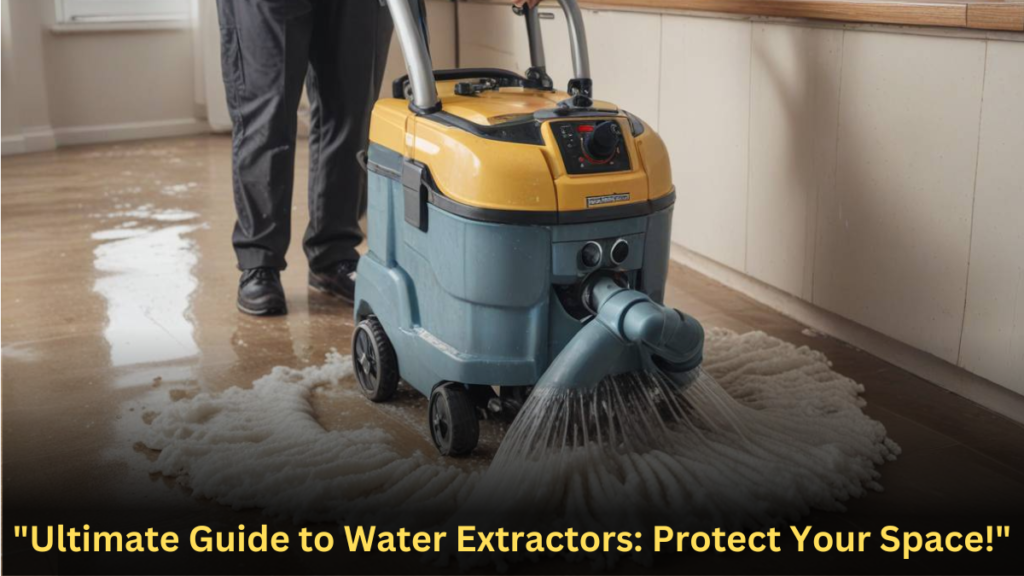







Pingback: What Does Gyatt Mean? A Deep Dive into the Viral Slang 2024 - Solvinsight